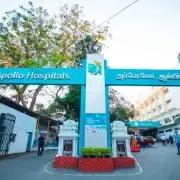Guidelines for International Patients in Indian Hospitals
In This Article
Guidelines for International Patients in Indian Hospitals
Nimisha
Updated on October 08, 2024
Medically verified by Dr. Arya
Fact checked by Dr. Fazeela

Medical Travel
10 minutes
India is one of the most sought after destinations by international patients who seek good quality care at relatively cheaper rates.
The country’s healthcare sphere is famous for high quality clinics, experienced doctors and a great number of treatments available.
Are you someone planning for your treatment in India? If yes, you ought to know about certain things from before-hand to plan your medical travel hassle free.
Karetrip brings you an all-in-one guide for your visit to Indian Hospitals. Let’s dive in.
1. Pre-Arrival Preparation
a. Research of Decision and Hospital Choice
- Accreditation: When choosing the place, it is advised to pick the hospital that is certified by the national or international organizations, for instance, JCI or NABH.
- Specialization: Learn hospitals that are reputed for the practice of the type of treatment that is required for a patient.
- Patient Reviews: Connect with previous foreign patients to assess the quality of services delivered and deductions for failure to compare results with those achieved in your country
b. Doctor Consultation
- Virtual Consultation: A vast majority of the developing health-care centers offer initial consultations with the medical staff members by phone. This allows a patient to discuss with the doctor on the disease they have contracted, explanation on the disease and even the likely estimated charges
- Medical Records: Let the chosen hospital have your medical records and history of every treatment taken, medication taken, and all the diagnostic test results
c. Visa and Travel Arrangement
- Medical Visa: Get a medical visa, a legal visa category that is provided to individuals who would like to seek treatment in India. Some of the hospitals provide help in visa matters especially when it comes to the application and the procurement of the visa.
- Accommodation: It is advisable to secure a hotel at a close range to the hospital. For the international patients, most of the hospitals have relationships with local hotels or they themselves provide accommodation in the guest houses within the hospital
- Travel Insurance: Ensure that your travel insurance covers for medical expenses or get medical insurance in the event that you will require one.
2. Arrival in India
a. Airport Assistance
- Pick-Up Services: A majority of the hospitals for admitting international patients have airport pickup services available for use. These should be organised ahead of time and again before one departs and could involve the following;
- Documentation: All nearby documents must contain your passport because it may be required when enrolling in the hospital, your visa, and your medical records.
b. Hospital Registration
- Admission Process: Upon reaching the hospital of your choice, there will be a need to have a registration done. This often involves filling out the paperwork which include such things as other papers to be tendered to the attorney, and down payment.
- Language Assistance: In most of the hospitals, language interpreters or translators are present to address the international patients available in the hospitals.
3. During the Treatment
a. The Concept of the Treatment Plan
- Detailed Explanation: Make sure that the doctor goes through the proposed treatment, steps involved, what may go wrong, the advantages and what should be expected. Do ask questions.
- Consent Forms: You will be asked to fill consent forms before any intervention is carried out on you. Attention should be taken to understand what one is agreeing to.
b. Payment and Insurance
- Cost Estimates: Obtain a detailed cost estimate before the treatment begins. Indian hospitals are known for their transparency in pricing, but it's essential to clarify any doubts.
- Payment Methods: Check the accepted payment methods (cash, credit card, bank transfer) and confirm if your insurance is accepted. Some hospitals have tie-ups with international insurance companies.
c. Patient Rights and Responsibilities
- Informed Consent: You have the right to be informed about your treatment and to consent to or refuse any procedure
- Confidentiality: Your medical information should be kept confidential, and you have the right to access your medical records.
- Responsibilities: As a patient, you are responsible for following the treatment plan, asking questions when in doubt, and respecting hospital policies and staff.
d. Cultural Sensitivity
- Understanding Local Practices: Be aware of cultural differences and respect local customs. For instance, doctors in India may have a more conservative approach, and it’s common to remove shoes before entering certain areas.
- Dietary Preferences: Inform the hospital staff about any dietary restrictions or preferences you may have. Most hospitals cater to international cuisines and special diets.
 10 min Read
10 min ReadBooking Budget Friendly Accommodation Near Apollo Hospital, Greams Road
 10 min read
10 min readWhere can I exchange Bangladeshi Taka To Indian Rupees?
 10 min read
10 min readUnique Bangalore: Unusual & Intriguing Places to Explore While Staying In The City For Treatment
Get a Callback Now
4. Post-Treatment Care
a. Discharge Process
- Discharge Summary: Before your discharge, all the treatment that you have been given, the medications administered to you and the follow-up regimen will be explained to you in detail. Please save this document to use it in case of any future occurrences.
- Follow-Up Appointments: Discuss with the patient any follow up appointments that need to be made and ensure you make them before the patient is discharged. Some treating facilities may provide telemedicine for the follow-up visits.
b. Recovery and Rehabilitation
- Rehabilitation Services: Depending on the outcome they may recommend and provide physiotherapy or occupational therapy within the hospital. The following services can mostly be continued after you have returned to your home country.
- Home Care Services: In order to help you out some of the hospitals give home care like nurse visitations and home delivery of foods and medicines.
c. Medical Tourism Support
- Medical Tourism Facilitators: These are agencies that help international patients with information on all hospital related issues till they are admitted, travel, and accommodation among others
- Hospital Liaison Officers: Most hospitals have isolated international patient divisions with representatives who help translate, organize appointments and cover all the aspects of localization.
5. Returning Home
a. Travel Clearance
- Fit-to-Fly Certificate: Any change of your health status upon your return to your home country, consult your treating doctor for a fit to travel clearance. This, as has been mentioned earlier, is often demanded by airlines provided that you have experienced major surgery.
- Travel Arrangements: Please check your travel details; you should also declare if you will require any assistance at the airport for your travel period.
b. Post-Return Care
- Medical Records: Take all your papers such as discharge summary, imaging reports, prescriptions to take back home. These will be important in any subsequent physician’s visits.
- Follow-Up Care: Get a follow-up appointment with a local doctor when you get back to your home country. Let them refer to your previous records of the Indian treatments that you have undergone to facilitate a continued treatment.
c. Feedback and Reviews
- Providing Feedback: Most hospitals would like the international patients to give out feedback on the services they render to them. It assists in enhancing the care to the subsequent patients and you get a chance to express yourself.
- Online Reviews: Providing feedback through an online platform would directly help other international patients design their treatment seeking mechanisms in India.
6. Legal and Ethical Considerations
a. Memories of Medical Misconduct
- Legal Recourse: If you think that you have been on the receiving end of medical negligence or malpractice, then India has provisions for you to seek legal help.
- Patient Rights: India has something known as Patient’s Rights Charter which contains rights of the patients such as right to privacy, right to consent and right to get access to their medical record.
b. Ethical Considerations
- Informed Decision-Making: Ensure that all the medical decisions that you take are informed decisions on the various treatments available.
- Transparency in Costs: Members in the ethical hospitals in India will present the members with clear details on the expenses that they are likely to incur and will not have any hidden charges. One should always insist on the doctor to provide a written estimate of the cost of the treatment to be provided.
Taking treatment in India is possible and can be quite fulfilling given the status of healthcare and doctors in the country. The healthcare journey CAN BE challenging for the international patients in case they aren’t prepared and informed.
Every moment in the process of selecting a hospital, getting to know the treatment plan to recovery after therapy, possible legal actions – all are vital for successful treatment.
If followed, these guidelines will enable you to navigate Indian health care with ease and access the quality health care they deserve.
Research: Select preferred hospitals that are accredited and that specialised in the kind of treatment you need.
Pre-Arrival: Checking through mobile clinics, pre-staging of medical records, and obtaining a medical visa.
Arrival: Avail hospital facilitated airport pick-up and finished the registration process.
During Treatment: Ask for details about the treatment plan, details about the payment procedure, and cultural sensitivity.
Post-Treatment: Take post-discharge orders, decide on rehabilitation, and contemplate on home care services.
Returning Home: Obtain fit to fly a letter, carry medical records and organise for follow up treatment.
Legal and Ethical: Paying attention to the patient’s rights, the legal action taken in case of malpractice, and the cost that must be disclosed.
Source Links
Indian Health Facility Guidelines
National Health Mission
Medanta Hospital

